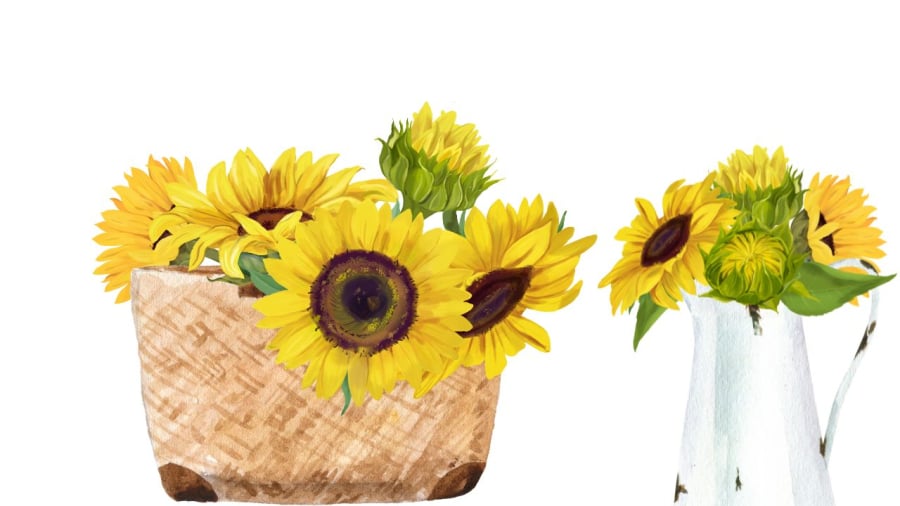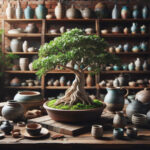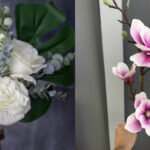Sunflowers were primarily grown for their seeds, but as leisure and entertainment activities developed, people started to appreciate their aesthetic value, and sunflowers became popular flowers for decorative purposes, gifts, and flower arrangements. The bright and cheerful appearance of sunflowers, along with their positive symbolism, has made them a beloved choice for various occasions.

The Beauty and Significance of Sunflowers
Sunflowers always face the sun, symbolizing growth, optimism, and a resilient spirit. Their name in Vietnamese, “hoa hướng dương,” translates to “flowers that face the sun,” capturing this unique characteristic. This association with the sun further ties them to ideas of prosperity, positivity, and the pursuit of light over darkness. Admiring sunflowers is believed to bring good luck and positive energy, reflecting a bright and hopeful outlook.
Today, sunflowers are a popular choice for conferences and events, offering a sense of freshness and vitality to any gathering.
Why do few people plant sunflowers in front of their houses?
Sunflowers are familiar flowers, but not many choose to grow them as ornamental plants. You’ll typically see sunflowers in vast fields on farms or at tourist attractions.
Sunflowers thrive in wide-open spaces with abundant sunlight. They don’t fare well when planted individually in front of houses, especially if they don’t receive enough sunlight. Insufficient sunlight will affect the beauty of the flowers, causing their petals to curl, which is also considered unfavorable according to feng shui principles.
Additionally, sunflowers have tall, slender stems, making them prone to falling over when planted in small numbers. When sunflowers don’t receive direct sunlight, they may fail to produce seeds, and their aesthetic appeal diminishes.
The biological characteristics of sunflowers can also impact nearby ornamental plants. They attract birds, insects, and pests, which may have negative consequences for other plants in your garden. Moreover, sunflowers can affect the nutrition of neighboring plants.
Considering these factors, it’s understandable why people rarely choose to grow sunflowers for feng shui purposes. Instead, they opt for already blooming sunflowers or those about to blossom.
To incorporate the symbolism of sunflowers into feng shui practices, one can display sunflower-themed artwork or paintings. However, it is not advisable to decorate with dried or artificial sunflowers, as these may have negative feng shui implications.
*This information is for reference and exploration only.





































